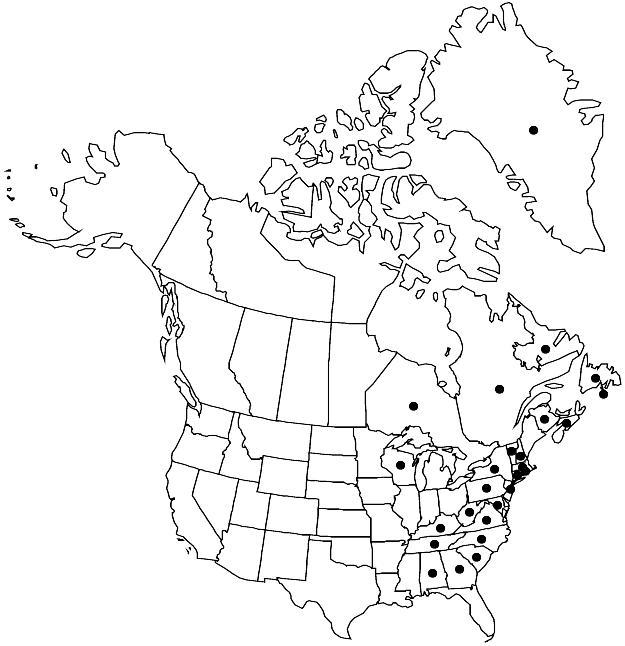Difference between revisions of "Fontinalis dalecarlica"
in P. Bruch and W. P. Schimper, Bryol. Europ. 5: 7, plate 431. 1846.
FNA>Volume Importer |
imported>Volume Importer |
||
| (2 intermediate revisions by 2 users not shown) | |||
| Line 1: | Line 1: | ||
{{Treatment/ID | {{Treatment/ID | ||
|accepted_name=Fontinalis dalecarlica | |accepted_name=Fontinalis dalecarlica | ||
| − | |accepted_authority= | + | |accepted_authority=Schimper |
|publications={{Treatment/Publication | |publications={{Treatment/Publication | ||
|title=in P. Bruch and W. P. Schimper, Bryol. Europ. | |title=in P. Bruch and W. P. Schimper, Bryol. Europ. | ||
| Line 35: | Line 35: | ||
-->{{#Taxon: | -->{{#Taxon: | ||
name=Fontinalis dalecarlica | name=Fontinalis dalecarlica | ||
| − | |authority= | + | |authority=Schimper |
|rank=species | |rank=species | ||
|parent rank=genus | |parent rank=genus | ||
| Line 48: | Line 48: | ||
|publication year=1846 | |publication year=1846 | ||
|special status= | |special status= | ||
| − | |source xml=https:// | + | |source xml=https://bitbucket.org/aafc-mbb/fna-data-curation/src/2e0870ddd59836b60bcf96646a41e87ea5a5943a/coarse_grained_fna_xml/V28/V28_771.xml |
|genus=Fontinalis | |genus=Fontinalis | ||
|species=Fontinalis dalecarlica | |species=Fontinalis dalecarlica | ||
Latest revision as of 21:37, 5 November 2020
Plants to 100 cm, dark green to yellowish, sometimes reddish. Stems slender, rigid; stem and branch apices tightly long-attenuate; axillary hairs 250–300 µm, 5–8 cells, basal cell quadrate, red, distal cells long-cylindric, hyaline or reddish. Leaves monomorphic, flat when dry, imbricate to subimbricate when moist, firm, ovate-lanceolate to lanceolate, concave, 2–4 mm; margins erect to incurved at base, usually reflexed proximally when dry, plane or erect to incurved at apex; apex acute or narrowly obtuse; medial laminal cells 60–140 × 4–8 µm. Perigonia with leaves 1–1.2 mm. Perichaetia with leaves ovate to suboval, 2.8–3.2 mm, apex acute or apiculate. Seta 0.1–0.2 mm. Capsule immersed, ellipsoid to oval, 1.5–2.5 mm; operculum obtuse-conic, 1 mm; endostome trellis imperfect. Calyptra 1.5–1.8 mm. Spores 20–50 µm.
Habitat: Rock, tree roots, along or submerged in fast moving streams, pools, lakes
Elevation: low to moderate elevations (0-1500 m)
Distribution

Greenland, St. Pierre and Miquelon, N.B., Nfld. and Labr., N.S., Ont., Que., Ala., Conn., Ga., Ky., Md., Mass., N.H., N.J., N.Y., N.C., Pa., R.I., S.C., Tenn., Vt., Va., W.Va., Wis., w Europe.
Discussion
Plants of Fontinalis dalecarlica are smoothly imbricate with long-attenuate stem and branch apices when moist, and have flattened leaves with strongly reflexed margins when dry. These features appear to be accentuated by strong stream currents. In size, aspect, and branch leaf form F. dalecarlica and F. welchiana are identical. Fontinalis welchiana, however, typically occurs in seasonally dry streams, has weakly dimorphic leaves (large subflaccid stem and small, rigid, strongly concave branch leaves), and leaves with consistently erect to incurved apical leaf margins. Fontinalis welchiana also differs from F. dalecarlica in having emergent, cylindric to subcylindric capsules and broadly rounded perichaetial leaves. Fontinalis dalecarlica has monomorphic leaves that vary from strongly concave throughout to concave proximally and plane distally. Apical leaf margins are usually plane, but on strongly concave leaves they can be erect. The aestivalis expression of F. sphagnifolia is similar to F. dalecarlica in having long-attenuate stem and branch apices as well as strongly concave when moist branch leaves; it differs from F. dalecarlica in having long, linear-lanceolate leaves. Fontinalis sullivantii differs from F. dalecarlica in having strongly dimorphic, linear-lanceolate stem and branch leaves with consistently plane apical margins. Large plants of F. dalecarlica sometimes approach those of F. novae-angliae in size; the two species are often confused. In addition to its larger size (stem leaf width 0.7–2 versus 0.5–1.2 mm), F. novae-angliae lacks long-attenuate stem and branch apices, and its leaves have erect to incurved apical margins. All reports of F. dalecarlica from Alberta, Manitoba, and Saskatchewan refer to slender forms of F. hypnoides.
Selected References
None.